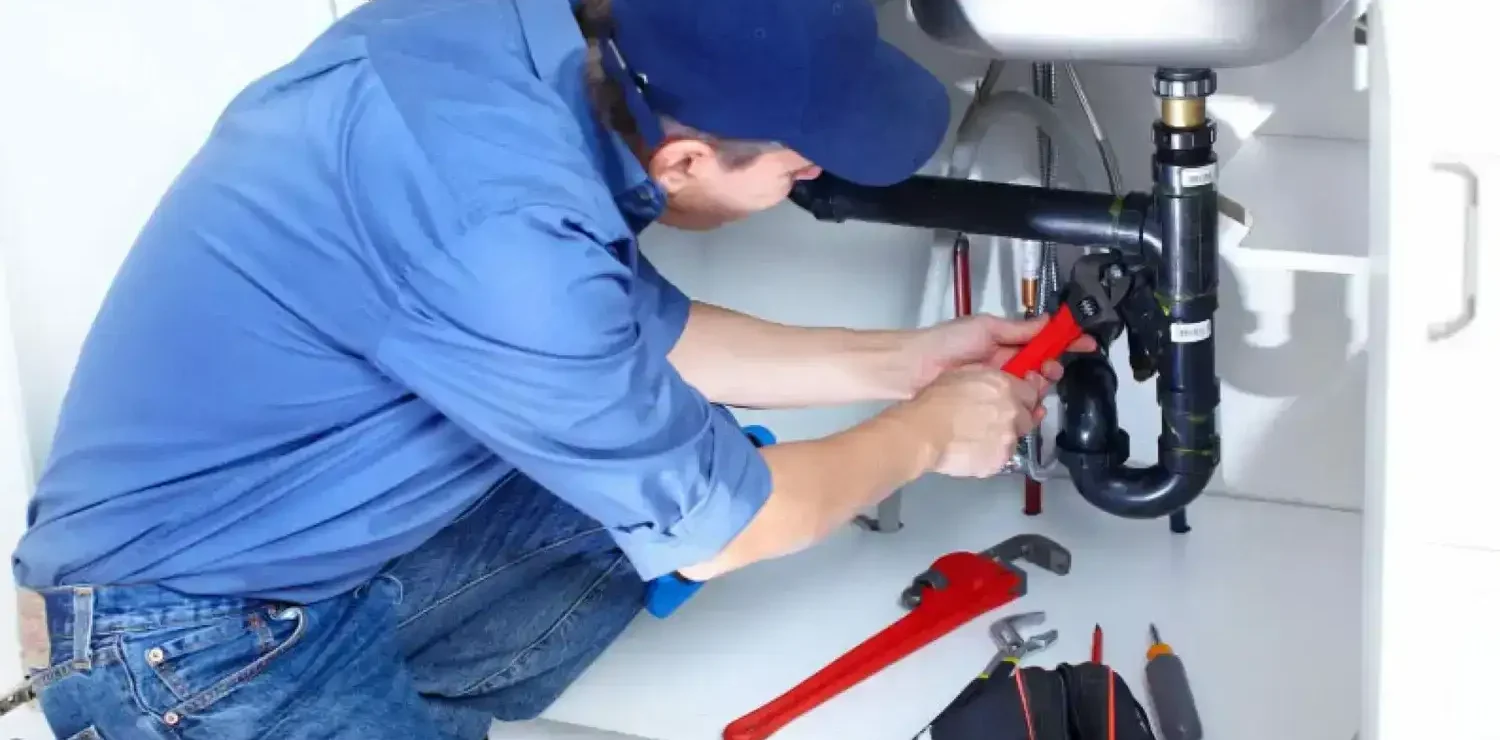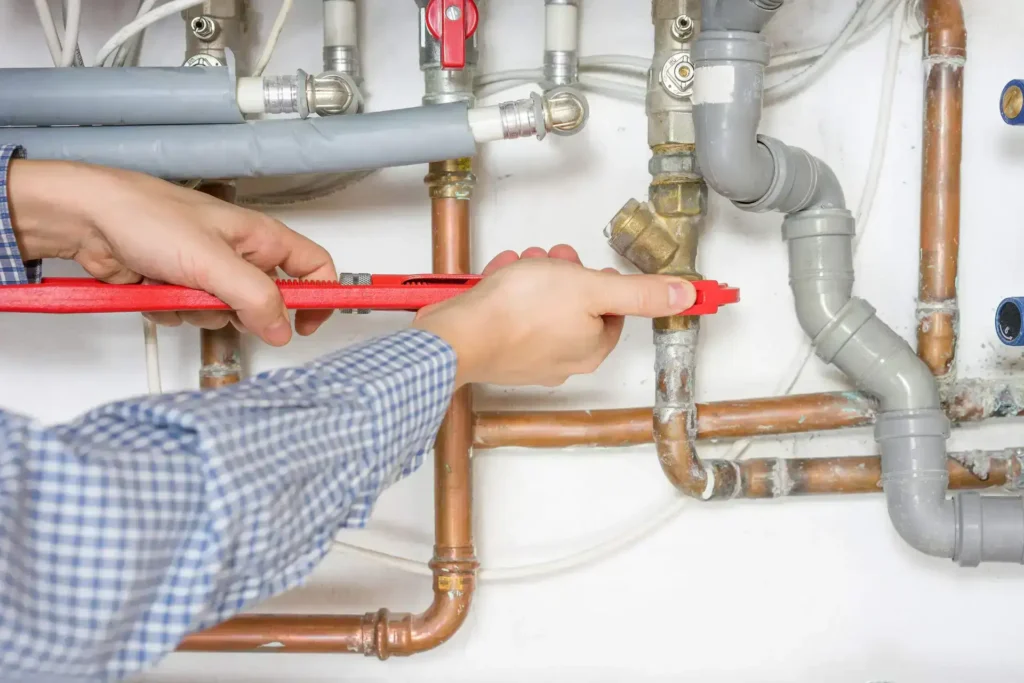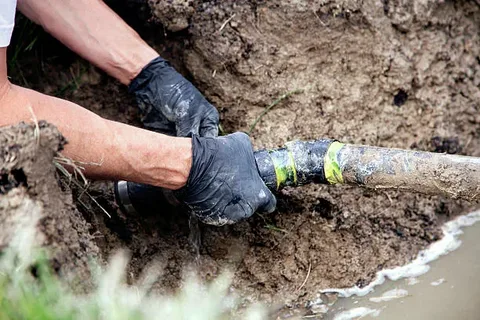When it comes to handling plumbing projects, many people wonder whether to hire a plumber or a plumbing contractor. Both play an important role in keeping the smooth flow of the plumbing system. A plumber is often the worker you call for repairs, maintenance, or small installations in your home, like fixing leaks or unclogging drains. Meanwhile, a plumbing contractor usually works on larger projects, such as plumbing installations for new buildings or major renovations.
It is important to understand the difference between plumbers and plumbing contractors. So you would choose the right one for your plumbing project.
Services of Plumbers

Plumbers are professional workers who work with pipes, fixtures, and systems that carry water, gas, and waste. They do the tasks like fixing leaky taps, unclogging drains, repairing damaged pipes, and installing sinks, bathrooms, and showers. Plumbers are often called for maintenance and repairs in houses, buildings, and sometimes large industrial factories.
They use various equipment and strategies to ensure pipes and fittings work properly and efficiently. This maintenance saves you from leaks, water damage, and health risks from unsafe water. Plumbers regularly work on smaller, specific jobs and play a key role in retaining plumbing structures working smoothly for daily use. Whether it’s an emergency repair or a regular test, plumbers ensure your water systems are secure, energy-efficient, and up to code.
Services offered by Plumbers are the following:
- Leak Repairs: Fixing leaking faucets, pipes, and showers to prevent water damage.
- Pipe Installation and Repair: Installing and repairing water, gas, and drainage pipes.
- Drain Cleaning: Clearing clogged drains in sinks, showers, and toilets for smooth water flow.
- Fixture Installation: Setting up sinks, faucets, toilets, and showers in homes and businesses.
- Water Heater Services: Installing, repairing, and maintaining water heaters for hot water access.
- Emergency Plumbing Repairs: Handling urgent issues like burst pipes or severe leaks.
- Sewer Line Services: Repairing and replacing sewer lines to prevent backups and foul odors.
- Water Filtration Systems: Installing and maintaining water purification systems for safe drinking water.
Services Offered by Plumbing Contractors

Plumbing contractors are professionals who deal with large-scale plumbing projects. They usually work in construction and essential plumbing renovation work. Unlike regular plumbers who work on small maintenance and installations, plumbing contractors tackle projects that involve designing, planning, and installing complete plumbing systems in buildings. They work on new constructions, commercial businesses, or large renovations. They deal with everything from main water lines to complex drainage systems.
Plumbing contractors are usually licensed and highly trained. They understand local working codes and permits. They work with a team of regular plumbers to ensure all plumbing systems are carried out effectively.
Specific services offered by Plumbing Contractors include:
- Installing main water line: Plumbers help to install or repair the main water line that allows the water in the house.
- System Installations: Set up complete plumbing systems for new buildings and major renovations.
- Sewer and Drain Services: Design, install, and maintain drainage and sewer systems for proper waste management.
- Gas Line Installations: Safely install and repair gas lines in homes and commercial properties.
- Water Heater Installations: Install large water heaters and tankless systems to provide hot water efficiently.
- Backflow Prevention: Set up backflow prevention systems to keep the water supply safe and clean.
- Emergency Plumbing Services: Handle urgent repairs on major plumbing failures to prevent damage.
Difference Between Plumbers and Plumbing Contractors
Various differences that separate the roles of plumbers and plumbing contractors are the following:
1. Role and Scope of Work
Plumbers are experts in repairing and maintaining water systems in homes and buildings. They cope with daily plumbing tasks like repairing leaks, unclogging drains, and installing taps. Plumbers typically work on small to medium tasks that focus on renovation and repair.
Plumbing Contractors tackle large, more complicated plumbing projects, frequently related to entire plumbing systems. They take care of essential tasks, like setting up the plumbing for new buildings or performing important renovations. Contractors additionally work on large projects such as installing main water lines and coping with sewer systems.
2. Training and Licensing
Both plumbers and plumbing contractors need proper training, but contractors normally require additional certifications and licenses. Plumbers complete apprenticeships or study college programs to gain the capabilities to handle residential and commercial maintenance.
Plumbing contractors, however, frequently need advanced licensing because they work with large commercial projects. They may also need certifications for special skills like gas line installation or backflow prevention.
3. Project Size and Complexity
Plumbers are best for smaller and more precise jobs. They’re typically hired to repair precise plumbing problems in a house or commercial building, like a leaky faucet or a clogged drain. These are single-task jobs that do not require a team.
Plumbing contractors take care of large tasks that involve complicated planning and installing more than one system. Contractors are frequently hired by construction groups to supervise plumbing installations from start to end.
4. Fee of Plumber and Plumbing Contractor
Plumbers usually charge around $45 and $200 per hour for basic repair and maintenance. Installing new pipes, taps, faucets, or systems would include the material costs.
While plumbing contractors charge in percentage depending on the size and complexity of the job. The fee of plumbing contractors varies between 10-20% of the overall project cost. However, for more complex projects, prices would be high.
It is important to understand the difference between plumbers and plumbing contractors. So you would choose the right one for your plumbing project.
When to Call a Plumber vs. a Plumbing Contractor
For common plumbing problems like a blocked drain or dripping tap, a plumber is the right choice. They’re trained to quickly resolve these issues and ensure everything works smoothly again.
For larger projects, like new home plumbing, major remodeling, or building a commercial property, a plumbing contractor is the better choice. Contractors have the skills, equipment, and team needed to handle bigger, more involved jobs.
Conclusion
Some differences separate the roles of plumbers and plumbing contractors. Plumbers are regular workers who take on small tasks such as fixture installation, leak repairs, and installing taps and pipes. They work on single tasks that do not require a team.
On the other hand, plumbing contractors are the specialized workers who take on larger projects such as working on the whole plumbing system of a house or building. These contractors work with a team of plumbers to ensure all tasks are completed efficiently.
It is important to understand the differences between plumbers and plumbing contractors. So, you can hire a skilled plumber or plumbing contractor according to your job.
FAQs
Q1. What is a plumbing contractor?
Plumbing contractors are professionals who deal with large-scale plumbing projects. They usually work in construction and essential plumbing renovation work. Plumbing contractors tackle projects that involve designing, planning, and installing complete plumbing systems in buildings.
Q2. Plumbing contractor license requirements?
To become a licensed plumbing contractor, most states require completing a combination of apprenticeship training, on-the-job experience, and passing a state licensing exam. Requirements vary by state, so checking with the local licensing board is essential.
Q3. Plumbing Contractor jobs?
- Installing the main water line
- System Installations
- Sewer and Drain Services
- Gas Line Installations
- Water Heater Installations
- Backflow Prevention
- Emergency Plumbing Services
Q4. Plumbing Contractor Salary
On average, a plumbing contractor’s salary can range from 10-20% higher than a general plumber’s wage, depending on experience, location, and project scope. Contractors typically earn a premium due to additional responsibilities, including managing projects and securing permits.


